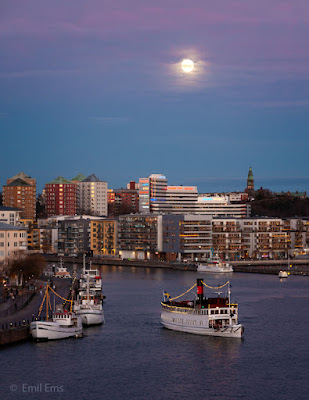During the past two years, I have touched upon the Plague in no less than ten blog posts. Hopefully, this time will be the last one for me to extemporise around the theme.
Why am I into it again? Well, to judge from recent events in South Africa, and increasingly in our parts of the world, the worst mutation of the Corona virus hitherto is already upon us. It is by far the most infectious, maybe ten times as much as earlier versions of the Plague. It will blaze like prairie fire through the global population and affect virtually everyone in its path. As I am writing this, at least a million persons a week are being infected in the UK, which is a foreboding of things to come in our own countries, even in Sweden here in the North.
As far as can be glimpsed, no one is fully protected against its infection. We may now all get the disease, whether vaccinated or not, whether having been already through the disease or not. It is safest to assume that we have to go through this hand in hand.
Whilst I am writing this, I can not keep from smiling and nurturing a rather rosy view of the year to come. Am I grasping at straws in desperation? Quite the opposite! At long last, the virus has reached a development stage that, with all probability, will lead to a timely ending of the pandemic, turning it into a relatively harmless yearly affliction, easily countered by recurring vaccination.
The reason for my prediction is of course the insight, that the new Corona variant does not affect us already vaccinated (or having gone through the disease) to a large degree. Don’t misunderstand me! People not enjoying the above protection will be as badly hit, when infected, as with the earlier variants. Therefore, the risk for them of getting severely ill or even die from the disease will drastically increase (compared to the earlier waves) in the one to two months to come. But once the wave has abated, most of our populations will have at least some kind of immunity
In that context, permit me to address those of my friends who have chosen to abstain from vaccination. I respect your decision, with the understanding that grown-ups should be free to make their own choices. However, you may wish to take a closer look at the situation and put your affairs in order whilst there is still time, including writing your last will. It is only too easy to fall into the trap of “dependence between taste and belief”, so please stay rational. By this I mean to be aware of the greatly increased risks befalling you within the next two months and act upon that awareness.
The rest of us, a great majority after all, don’t need worry too much about the great wave to roll over us within a month or two. We will most probably be infected, but almost none of us will get seriously ill. The risks involved for us may not be greater than from getting an ordinary flu.
This brings me to the title of this blog post. It refers to some wordings by a German poet that got popular through the melody added to them. The content appears particularly relevant in the present context. Why not experience it in the enclosed video, as being sung at a grand finale. The text is as follows:














